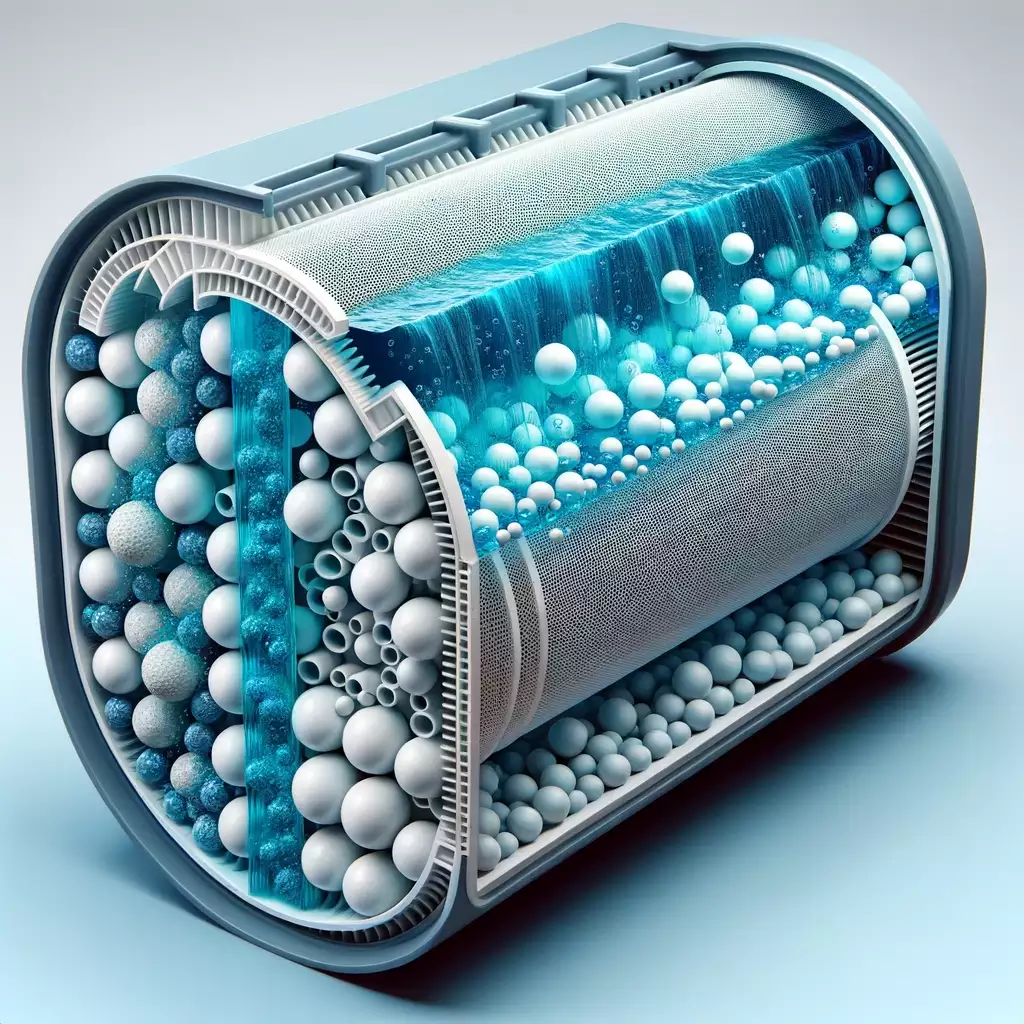As swimming pool maintenance evolves, pool filter balls have become a common method for pool cleaning. This article primarily analyzes several common problems encountered when using filter balls in swimming pools, offering practical solutions to ensure your pool filter balls continue to work effectively.

Problems That May Arise During Use
Decreased Filtration Efficiency
When using pool filter balls in a home swimming pool, you may notice after several months that the water is no longer as clean as it was initially. This could be due to the filter balls accumulating dirt and fine particles, causing the micropores to become blocked. These blocked pores reduce the space for water to flow through, thus decreasing filtration efficiency. Especially in summer, when pools are used more frequently, the increased usage brings more impurities, making the filter balls more prone to clogging.
Solution:
Regularly remove the filter balls (e.g., monthly or according to usage) and clean them with clean water. In some cases, a mild chemical cleaner can be used for cleaning, which helps remove grease and other stubborn stains. If the filter has a backwash function, use it regularly to effectively remove blockages and restore the filtration performance of the filter balls. If the filter media is worn or damaged, or if it cannot achieve the desired filtration efficiency after cleaning, consider replacing it with a new one.
Reaction with Other Chemicals
To ensure water quality, some swimming pools commonly use chlorine or other strong chemical disinfectants. Although these chemicals have a strong disinfecting effect, long-term use can also cause chemical erosion to the swimming pool’s filter balls. Especially some filter ball materials, which are more sensitive to chemicals, prolonged exposure can cause material degradation and structural looseness, thereby affecting the filtration effect, and in severe cases, causing the filter material to break and fail.
Solution:
1、Choose chemically resistant materials. When purchasing filter balls, select those that are highly resistant to chemical disinfectants, such as specially treated polyester fibers or other chemically resistant synthetic materials.
2、On this basis, through reasonable chemical ratios, dosages, frequencies, etc., minimize the chemical impact on the filter material. For example, consider using milder or lower-concentration disinfectants, or, if necessary, non-chemical disinfection methods such as ultraviolet disinfection.
Floating and Positioning Issues
If the pool filter balls used are light or not compactly designed, they might float or move inside the pool filter. Especially when the pump starts and stops, the change in water flow can cause the filter balls to shift, making this phenomenon more pronounced. If the filter particles cannot be evenly dispersed within the filter, it will cause some of the water to be ineffectively filtered, affecting the overall filtration efficiency of the pool, making some areas’ water quality worse than others.
Solution:
1、Use appropriate filter material: Choose medium-weight or slightly heavier filter material to ensure stability in the water flow and prevent drifting.
2、Improve the design of the filter: Add fixed devices inside the filter, such as isolation plates or grilles, to ensure the stability and uniformity of the filter balls.
3、Regular inspection and adjustment: Regularly check the filter balls inside the filter media and manually adjust their positions if necessary to ensure overall coverage.
4、Use tools,Install special equipment or brackets inside the filter to prevent the filter from moving with the water flow.
Therefore, although filter balls are a new and efficient purification device, they also have many problems. Thus, this study believes that for the maintenance and upkeep of swimming pools, it is necessary to consider the material, density, and applicability of filter balls. Proper installation, regular cleaning, and timely replacement are essential to maximize the efficiency of filter balls and ensure the cleanliness and safety of swimming pool water.
